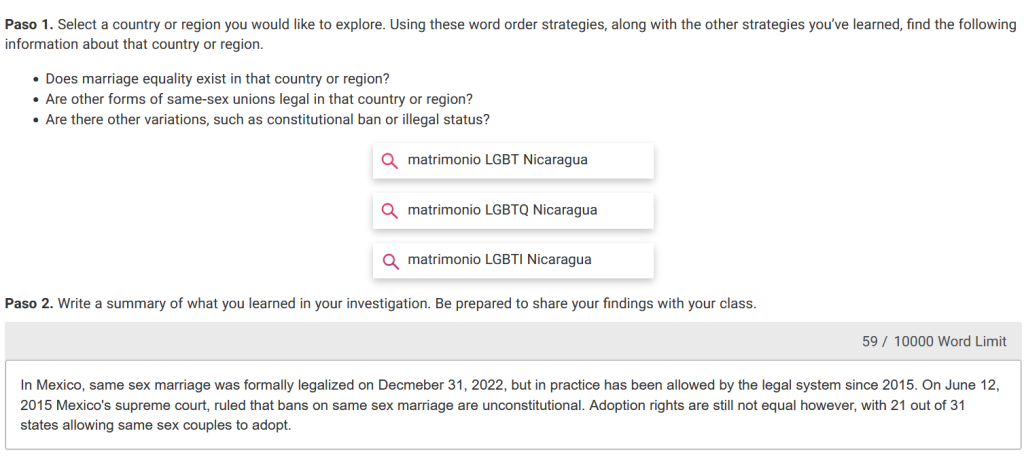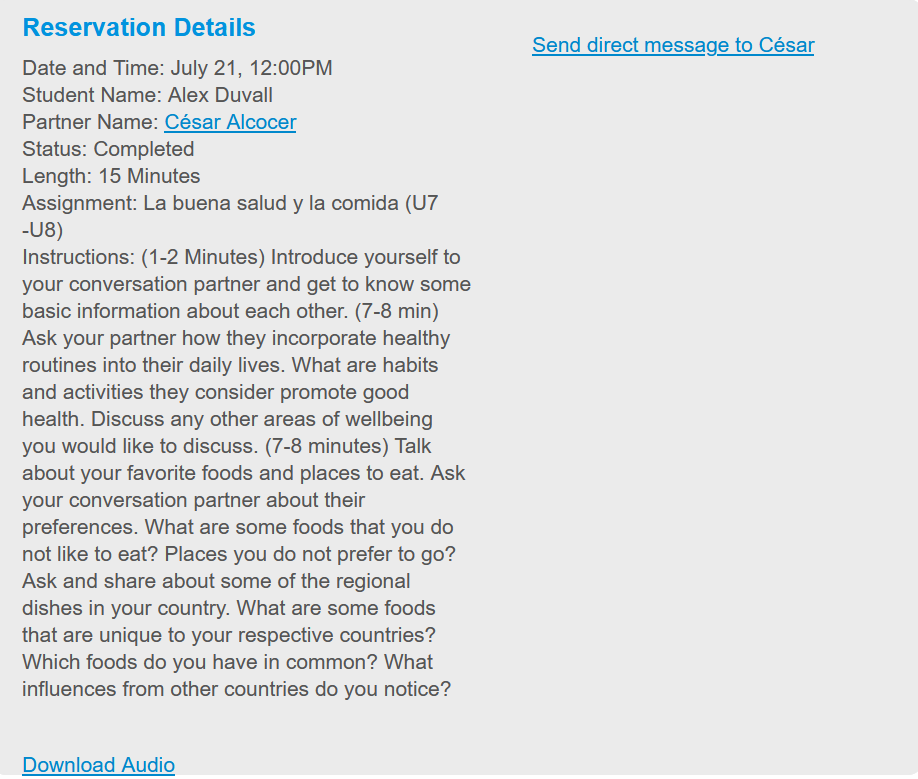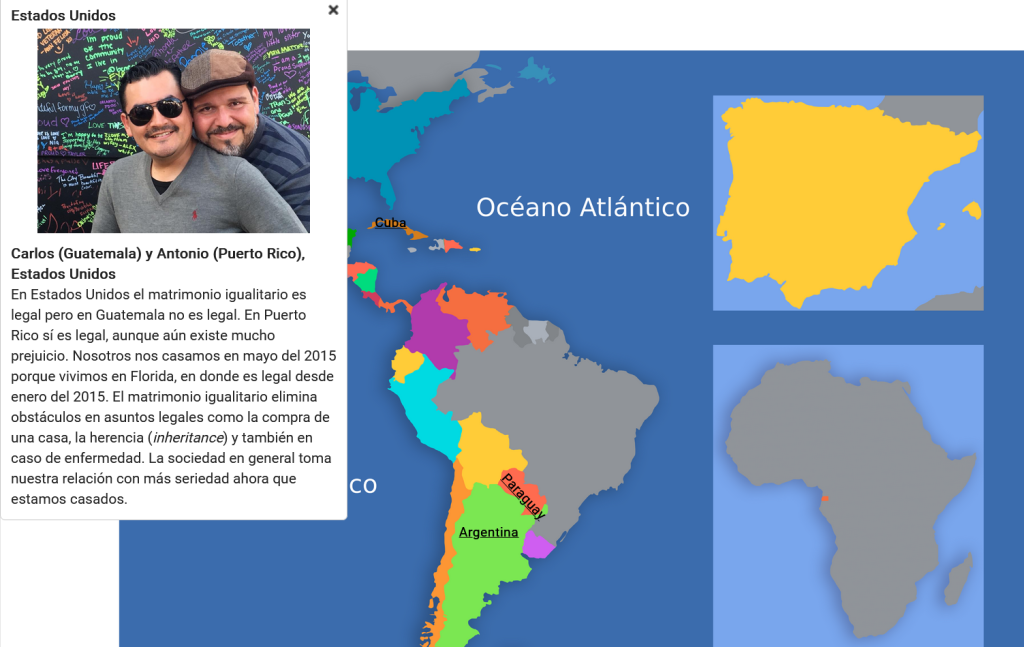Interpretive, Interpersonal, and Presentational Modes of Communication
Exploring Culture
For each unit, we had a LingroLearning assignment to complete that was about various aspects of Hispanic culture from countries in North and South America. Doing research to find out about LGBTQ+ rights, and women’s athletics, among other things was very enlightening to how struggles felt in my country are similar to struggles held in other countries.
I have always had some inklings of how life is like outside of my home country, but this class has helped me to actually realize what is different and similar. I think a lot of people have certain thoughts like “the rest of the world must experience things like how I experience them,” when that really is not the case.

Engaging in Communities
Engaging with your community leads to strong bonds, and forming new friendships. Participating in community events can help protect your community as well. For example, if someone strange is seen around a house or an apartment building, they can inform all of their neighbors to warn them. If the community isn’t close, then that warning may not get out. It is easier than ever to connect with people on a global scale with the advent of social media, and I even have a few friends that live in other countries because of the bonds we’ve formed over the internet.
Interpersonal Communication
TalkAbroad was a useful tool especially for online students who aren’t able to converse with each other and the teacher regularly. I quite enjoyed my two conversations, the other speakers were respectful and understanding in dealing with my limited knowledge of Spanish. The discussion boards were also a useful tool to allow for more cultural understanding and comparison.
If I had the chance to redo my conversations on TalkAbroad, I would have studied much more for them. I went into them relatively unprepared, which had me stumbling topics I wasn’t familiar with. I do think that I did slightly better on the second convo, but I still could have done more.

Presentational Speaking
I did not have to give any presentations this semester for Spanish or for my other classes, but I usually handle them well. I am heavily involved in theater and I like to play Dungeons and Dragons, both of which involve heavy memorization as well as improvisation when the need arises. While I do tend to get very nervous and can speed through my content, I do think that I maintain a good atmosphere and am able to convey information effectively and efficiently.
Presentational Writing
The last time that I think I have created a pamphlet, flyer, or article would have been in high school or middle school, so I don’t think I have access to any of them. But I do remember creating posters for my civics class to try and advertise candidates for a mock election. It was a fun challenge to create snappy slogans and to make a persuasive argument using very limited materials and space.
Interpretive Listening
We had many many listening activities during this Spanish course, because one of the most important parts of learning a language is comprehending what others are saying. They were usually simple sentences based on what unit we were working on, but for some we had to listen to whole paragraphs to parse information, which was an added layer of needed difficulty.
I think that the listening activities helped me quite a lot in the long run, but they could be somewhat frustrating to get through, having to repeat the recording several times in order to answer multiple questions.
Interpretive Reading
In English, give a very brief 2-3 line description of interpretive communication activities you read in and out of class this semester, such as articles, stories, websites like the Language Learning Center, etc. that you completed for or related to your Spanish learning. Include a copy of one of these activities; remember to cite it. (See Modes of Communication link for description and examples).
Then, write a short reflection paragraph that includes the activities you described above. What was unclear or challenging for you? How did you overcome this difficulty? What did you find most interesting or compelling? What was your takeaway from the reading? How have you grown with each assignment?
For each unit, we learned a bit about Hispanic culture around North and South America through cultural explorations. These all had us read passages written from the perspective of people living in different countries and what their lives are like, what food the enjoy eating, and how they spend their time.
I found them very enlightening in broadening my horizons in how I wrote about before. They could be a little frustrating to get through going back and forth between the tabs of the assignment to refer back to the information given to us, but the information itself was interesting. I think that with each assignment and learning more about other cultures helped me to expand my viewpoint greatly, and I will try to bring that expanded perspective with me into the future.
